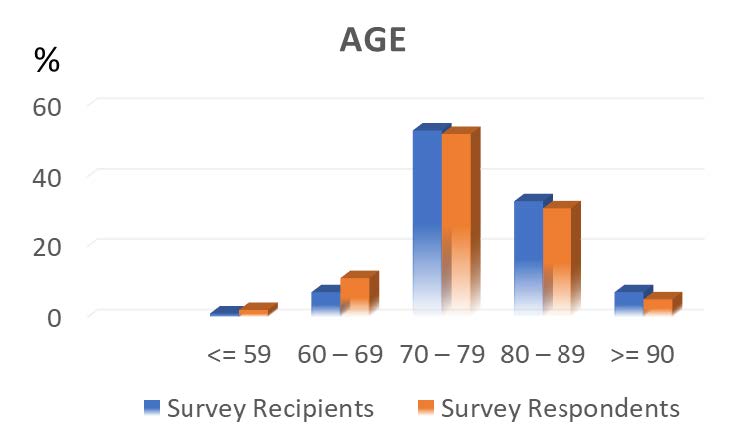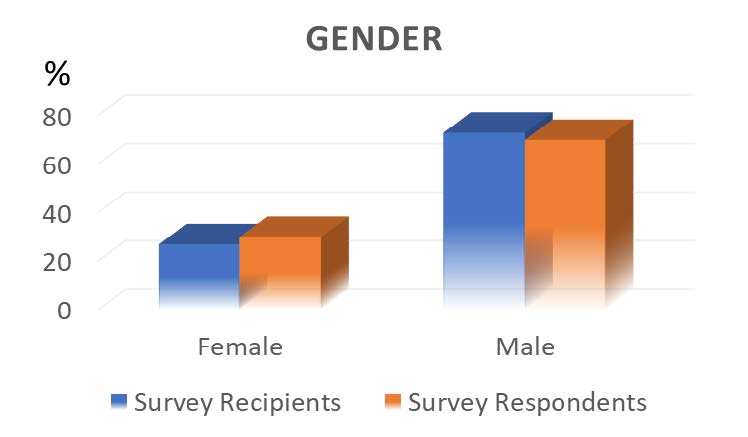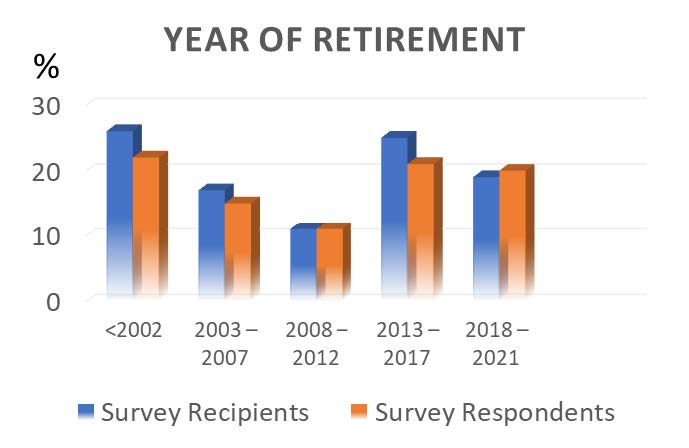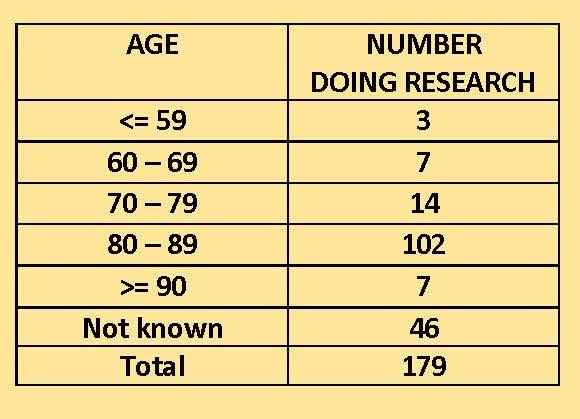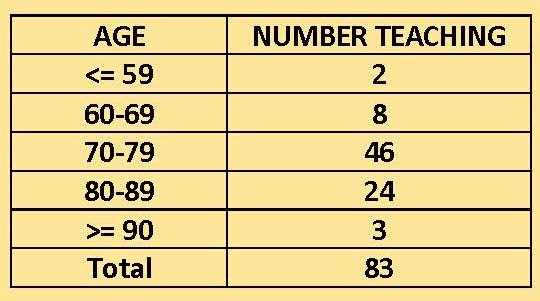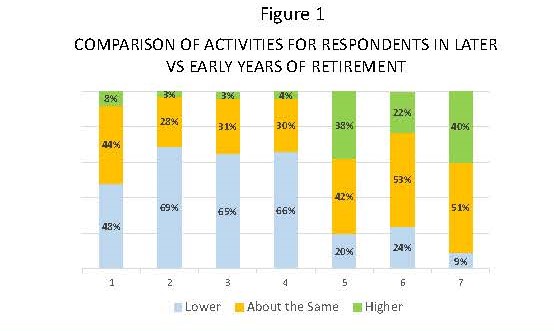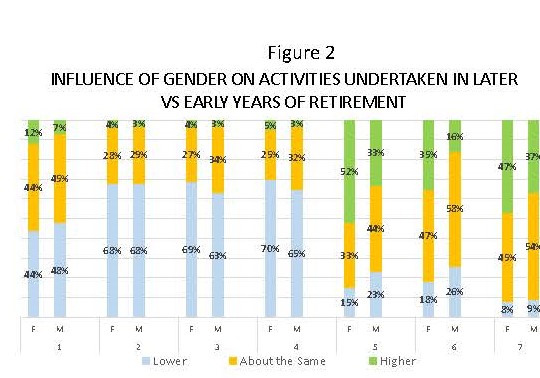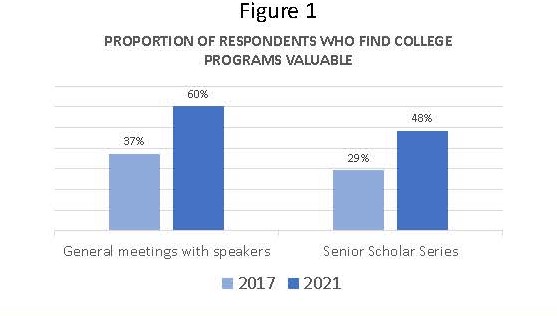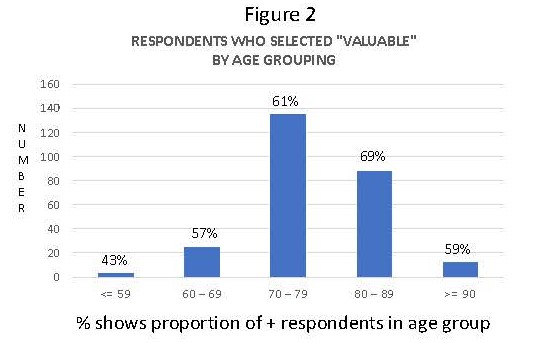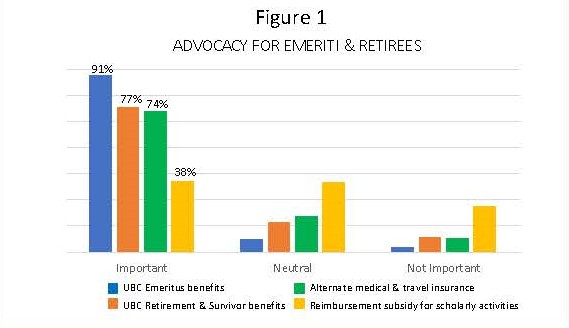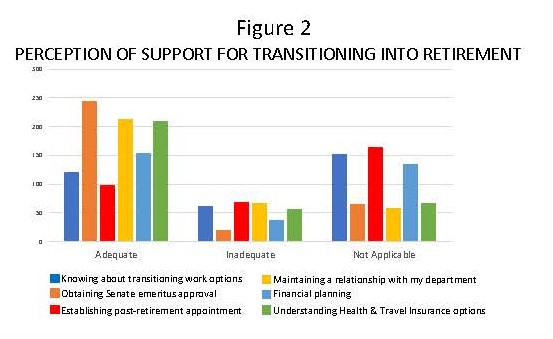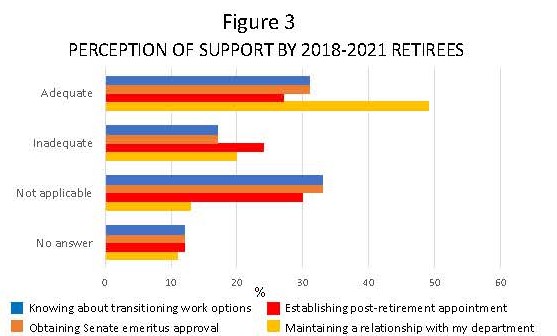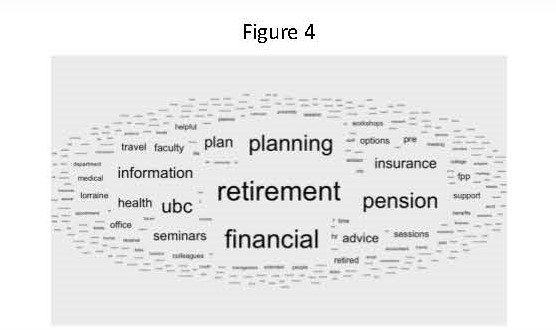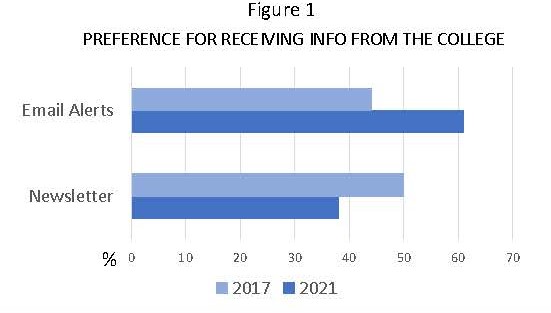“I do not relate to the term ‘retirement’. I resonate more to ‘re-inventing’, ‘re-tooling’, ‘re-firing’.” (2021 Survey respondent)
NOT SO RETIRING
Unique in Canada, the UBC Emeritus College was approved in June 2018 by both the Board of Governors and the Senate, building on the success of the UBC Association of Professors Emeriti (APE) (1987-2019) by enhancing the potential for emeriti to maintain existing relationships and develop new ones with colleagues in other disciplines. The College continues the important role of APE in supporting faculty members and senior academic administrators as they transition into retirement, providing a welcoming social and intellectual environment, and advocating for benefits and programs to promote the well-being of all.
Emeriti contribute to the academic work and reputation of UBC through lecturing and mentoring, research and publishing, and participation in university committees, among other commitments. They are also active in special interest groups of the College for travel, photography, films and poetic odysseys, and enthusiastic contributors to the newsletter and special presentations of artistic and published works at general meetings.
In Spring 2021 the College conducted this survey of its members to garner qualitative feedback on its programs and activities, and to explore how people adapt to a new phase in life. There were 456 respondents who were representative of the 1227 survey recipients in terms of gender, age, and length of retirement. Many people took the time to provide comments which will be helpful in shaping College initiatives.
Only 8 respondents (2%) indicated dissatisfaction with their post-retirement experience, while 87% expressed satisfaction (41 (11%) were neutral). We hope that you will appreciate that the information in this report contributes to the growing view that "Retirement may be an ending, a closing, but it is also a new beginning."
THE SURVEY
The survey used an on-line questionnaire developed in Qualtrics, a cloud-based service provider contracted by UBC, and which meets UBC privacy and security requirements. Survey information collected using this tool is stored in Toronto ON and backed up in Montreal QC. Survey sections and questions were largely drawn from APE surveys conducted in 2012 and 2017 so results could be compared. Questions were reviewed and additional fields of inquiry were suggested by relevant committees within the college including Communications, Programs, Special Interest Groups, Transitions to Retirement and Continuing Scholarly Activities. The survey was opened April 29th and closed May 31st. Notice with an embedded link was sent via email on three occasions (April 29th, May 13th, and May 27th) and posted in the May e-newsletter.
Not everyone answered all questions, and many questions allowed multiple response selections, so response percentages to questions were calculated using the number of selected responses (ie. “Important” “Not Important”) divided by the total number of people who answered any part of the question.
What people are doing
Feedback to the College
Advocacy & Benefits
Transitions to Retirement
Communications
Final Comments
“Never forget that even after retirement your advice and experience are calculable assets of UBC.”
“It would be nice to know how many members live outside of Vancouver and, if there are other members like me, acknowledge that the Emeritus College is indeed a distributed Provincial institution, very much like UBC is at present.”
“Keep up the good work. Keeping connected is vital.”
“As I am ninety years old and just surviving has become a full time job! I enjoy reading about all the programs that are active even without participating. Thank you for asking.”
“The long questionnaire is exactly what a research project should be, and I hope us older folks will take the time to ponder each question and answer them, perhaps not in the time suggested.”
“Hugely impressed with how the Emeritus College has taken flight and expanded its offerings. I am also relieved that it is a home for those with divergent interests and is not focused predominantly on colleagues who continue to pursue research endeavours. It is a great model for other academic institutions across the province, nationally and even internationally. Well done!”
“Lets all stay young, without its mistakes.”
Further information:
Link to Data analysis of Survey by UBC Department of Statistics (detailed report in PDF)
